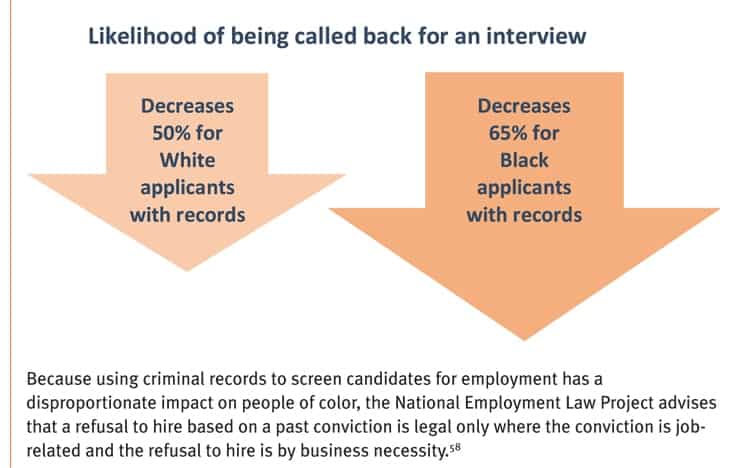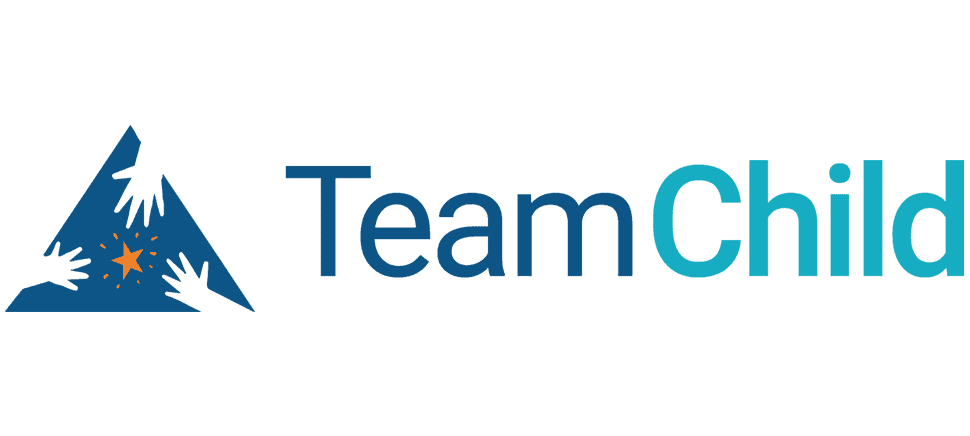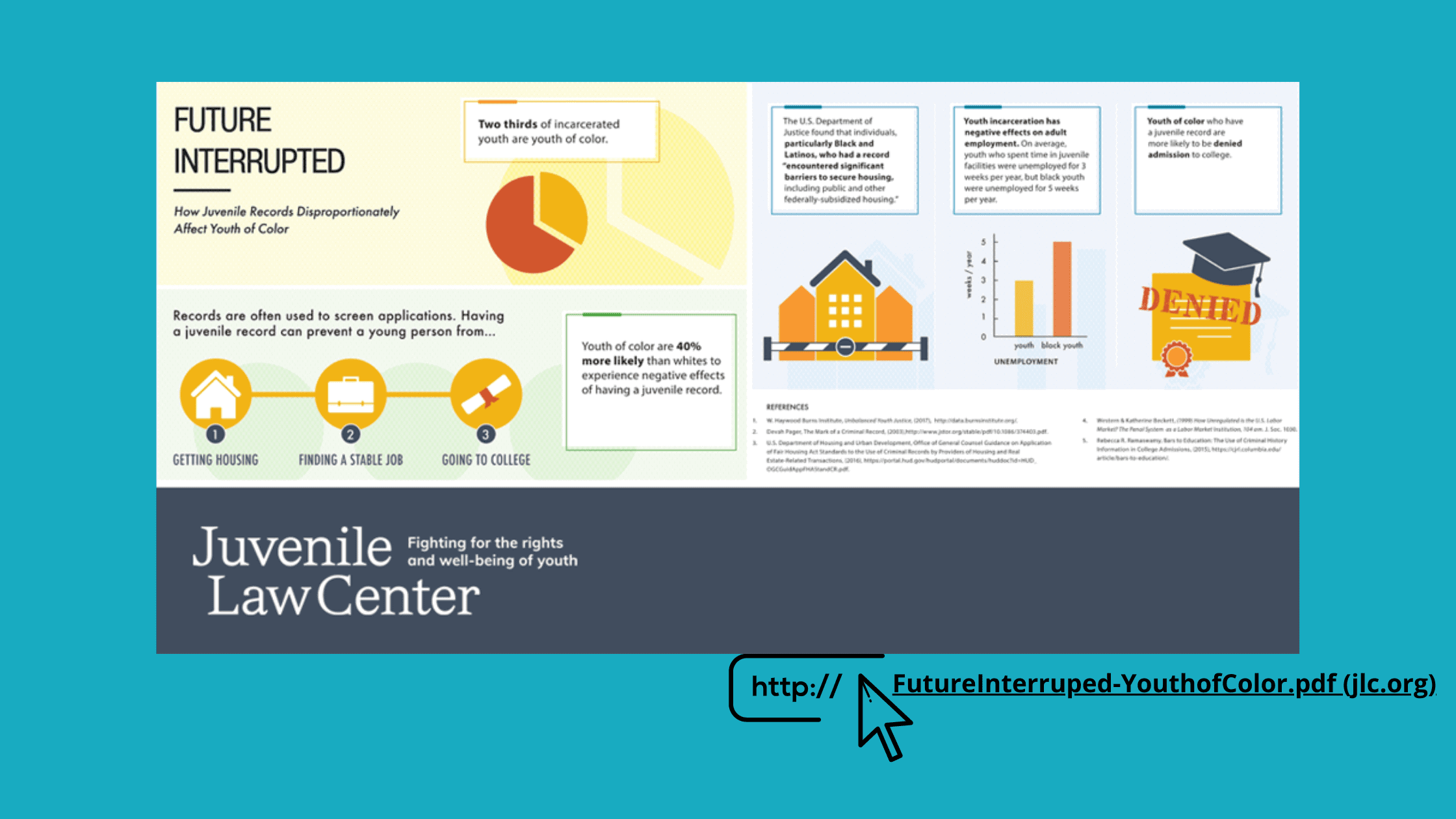Protections for Young People Delayed
TeamChild continues to support Washington State Supreme Court’s rule changes that protect youth from a lifetime of exposure to their juvenile legal cases. These new rules passed in March and were scheduled to take effect in May. Unfortunately, the Supreme Court voted to delay implementation to allow for more discussion about how to implement the new rules. Hopefully, youth in our state will benefit from these protections as soon as there is adequate discussion about how to make the needed changes.
A youth’s legal record is not confidential. A youth’s legal consequences don’t easily disappear when they turn 18. It is very difficult for a young person to move forward from a juvenile legal consequence, even after they have completed all their court-ordered interventions, completed periods of incarceration, succeeded with treatment, accomplished community service, or completed any other court-ordered requirement. One of the reasons why it is difficult to move forward from past mistakes is the Internet. Our courts should not create systems that make it easier for a young person’s record to live on into eternity over the Internet.
The clerks in our court system have a duty to make sure that the court system is open to the public. It is really important that anyone can watch what the courts are doing and observe the way our government operates. There is an old saying that sunlight is the best disinfectant, which means that a good way to prevent government corruption is to make sure the people have access to the government’s business. Our courts are an arm of the government, as are police, prosecutors, probation officers, and public defenders.

The effect of a criminal record is 40% larger for black Americans than white Americans. Infographic from Juvenile Law Center.
But that duty does not require the clerks in our courthouses to create online databases that put juveniles’ names into the internet in ways that will follow them for the rest of their lives. Unfortunately, the King County clerks office did that and created a searchable database that made young people’s names quickly searchable. A decision like that can create a harmful impact for hundreds of young people, especially Black and brown youth who are disproportionately impacted by the juvenile legal system. (See infographics from the Juvenile Law Center here.) The Court rules in question will protect young people’s privacy; the amendments made to GR 31 tell the clerks they cannot display a youth’s full name on a publicly accessible website or application.
There is no law that requires that a young person’s full name be listed in court records. In fact, the Court of Appeals already requires that all cases involving minors use initials only. Our Superior Courts also require initials for any minors who are victims, minors involved in family custody cases, and minors who are in dependency cases (when youth are taking into custody by Child Protective Services). We continue to have confidential records for youth involved in truancy as well as At Risk Youth and Child In Need of Services cases. So our courts have long recognized a need to protect the identity of youth in the court system. Even with the current protections, our state is one of the least protective of a youth’s legal record in the whole country. We are second worst when it comes to confidentiality. (See p. 7, Failed Policies, Forfeited Futures (2020) | Juvenile Law Center).
Alaska, Oregon, and New Jersey only use the initials of youth at the trial level. California uses first name and last initial or initials. New York State uses full names, but restricts who can search those records. The language in their law says youth’s records are “not open to indiscriminate public inspection.” California and Oregon also have rules protecting who can search a youth’s legal record. The federal courts require the use of initials for minors in civil pleadings. Washington State seeks to improve protections for young people and the Washington State Supreme Court’s new rules would assist with that goal.
Using initials in juvenile legal cases will not create collateral harms to community safety. The court system attaches a unique identifying number to every individual youth who is charged with a crime. That unique number allows prosecutors to find out the entire criminal history of any young person, or adult, they are prosecuting. The Department of Licensing will receive clearly identifying information about any youth who is denied a driver’s license because of a criminal charge. Warrants for a youth will have their full name and the police department will know who the warrant is for. The clerk’s office can still collect restitution from any youth ordered to pay restitution as a consequence of their criminal case. In fact, over 800 different agencies have access to the system that provides the unique identifier and the youth’s full name.
The consequences for young people, when their juvenile legal cases live on forever, are significant and well documented. These young people face barriers to employment, safe housing, and education achievement – all resources that could sustain and support them. While these new protections are currently delayed, we hope that they will be in place before the year comes to an end.



